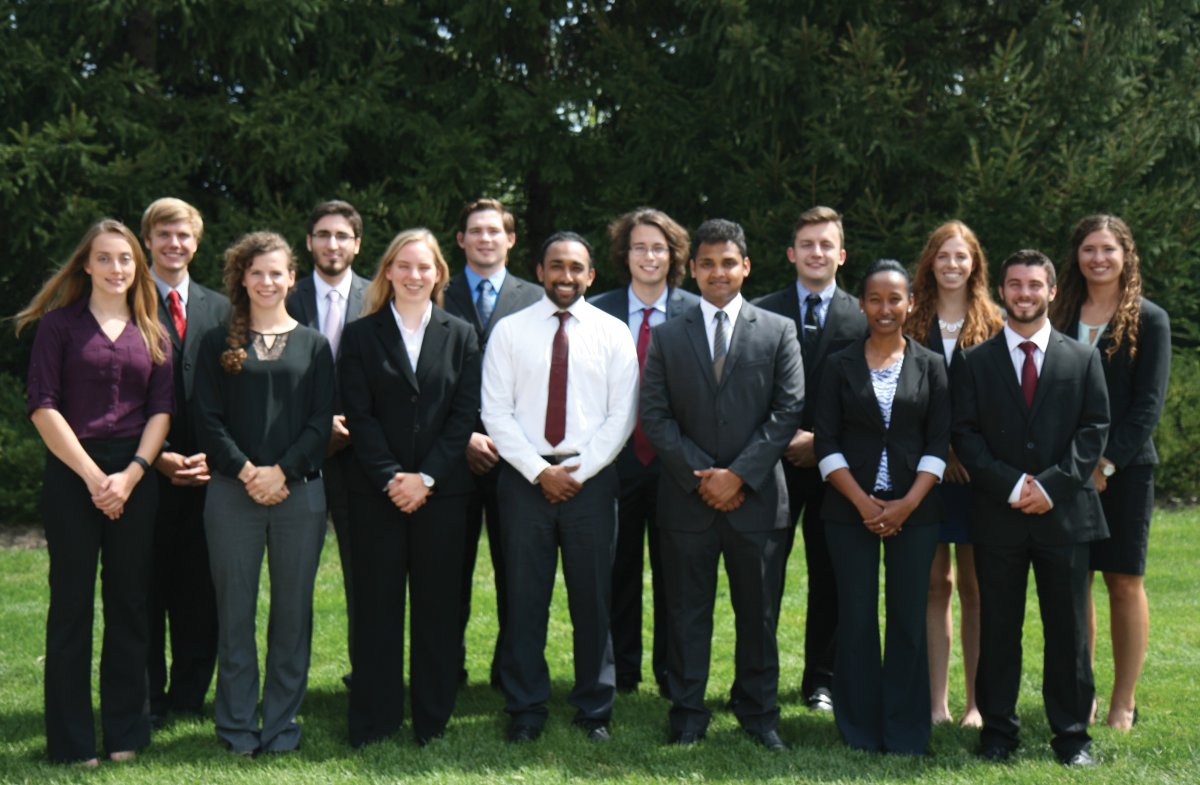Summer interns help save businesses resources and money

MnTAP interns have helped save Minnesota companies $10.5 million
June 12, 2017
Everyone knows that summer internships can help students gain real-world, professional experience, but few people know that one University of Minnesota internship program has helped businesses save an unbelievable amount of resources and money.
Since its inception in 1985, more than 200 interns in the University of Minnesota’s Technical Assistance Program (MnTAP) have helped Minnesota companies conserve 600 million gallons of water and 5 million therms of electricity. That is enough water to satisfy the entire population of Minneapolis for 10 days and enough electricity to charge 4 billion cell phones. These interns have also helped save companies $10.5 million.
“Our engineering staff is good at identifying things that aren’t working optimally, but they’re really busy and have competing priorities,” said Cheryl Erler, an environmental analyst at Xcel Energy and University of Minnesota alumna.
This is a familiar story to many businesses, regardless of the industry. Reducing waste and improving efficiency are nice ideas, but they aren’t always high priorities.
That’s where interns at MnTAP come in. Each summer, MnTAP staff matches third- and fourth-year university students with local companies and municipalities that want assistance with addressing those long-term challenges. Many of the interns are students from the University of Minnesota’s Twin Cities campus majoring in chemical engineering and mechanical engineering.
For a cost-sharing fee of about $3,000, which is considered a donation to the University, each business gets a smart, motivated intern who is eager to apply his or her academic knowledge to solving real-world problems. Donations from other organizations and trade associations also help fund the internship program.
The interns spend the summer helping organizations prevent pollution, reduce energy consumption, and use resources more efficiently. At the end, they deliver a presentation detailing their work and outlining next steps for the business.
Over the last five years, interns have helped organizations including IBM, 3M, Park Nicollet, Land O’Lakes, Seneca Foods, and August Schell Brewing Company conduct energy audits in industrial facilities, reduce energy used in refrigeration systems, conserve water in food packaging processes, and more.
This summer, MnTAP has placed 17 student interns at 17 different companies around Minnesota. The students will tackle projects such as optimizing chemical treatment processes for Minneapolis Water Treatment & Distribution Services and improving the efficiency of ventilation systems for SkyWater Technology Foundry in Bloomington, Minn.
“The interns look at some of our historic problems through fresh eyes,” Erler says. “They approach things differently.”
At Xcel Energy, Erler said interns explored new ways to reduce water consumption at two of Xcel’s Twin Cities power plants. She said the work done by interns in 2015 and 2016 is saving the company an estimated $69,000 per year.
Helping prepare the next generation
In addition to a benefit for companies, the program equips interns with the skills necessary to work in the professional engineering field.
Katherine Venne, a 2017 chemical engineering graduate, was selected from nearly 200 applicants for one of 14 MnTAP internships last summer. During her internship, she worked at G&K Services, an industrial laundry facility based in Minnetonka, Minn. Venne conducted a cost-benefit analysis for a new wastewater treatment system at the company’s North Minneapolis plant.
“They were getting charged for anything they put down the drain that had solvents, oil, and grease, so their surcharges were very high,” Venne said. After doing her analysis, she found a system that would save the company money on wastewater surcharges, reduce waste, and reuse water.
Venne wasn’t afraid to get her hands dirty, either. She sorted through the solid waste at G&K’s plant—including towels, uniforms, and plastic mats—to discover opportunities for recycling and reuse. She found that by working with a textile recycler in Winona, Minn., G&K could reduce its solid waste by 168,000 pounds per year and save more than $10,700 annually.
“The internship gave me the opportunity to learn about an industry and an area of engineering I previously knew little about,” Venne said. “My favorite part was seeing the final calculations and how big of a difference such small changes could make.”
2016 MnTAP summer intern Nathan Landwehr, who now works as the MnTAP Intern Program Administrator, said his internship allowed him to apply things he learned in the classroom to a real project with real goals.
“MnTAP internships go beyond exposure,” Landwehr explained. “You get to see your idea become reality. Interns can enter the job market afterward with confidence and real, quality experience.”
For more information about the MnTAP program and how you can get involved, visit the MnTAP website.
This story was adapted from a Spring 2017 Legacy magazine story by Eve Daniels with contributions from Olivia Hultgren.
If you'd like to support University of Minnesota College of Science and Engineering students with scholarships, visit our CSE Giving website.
